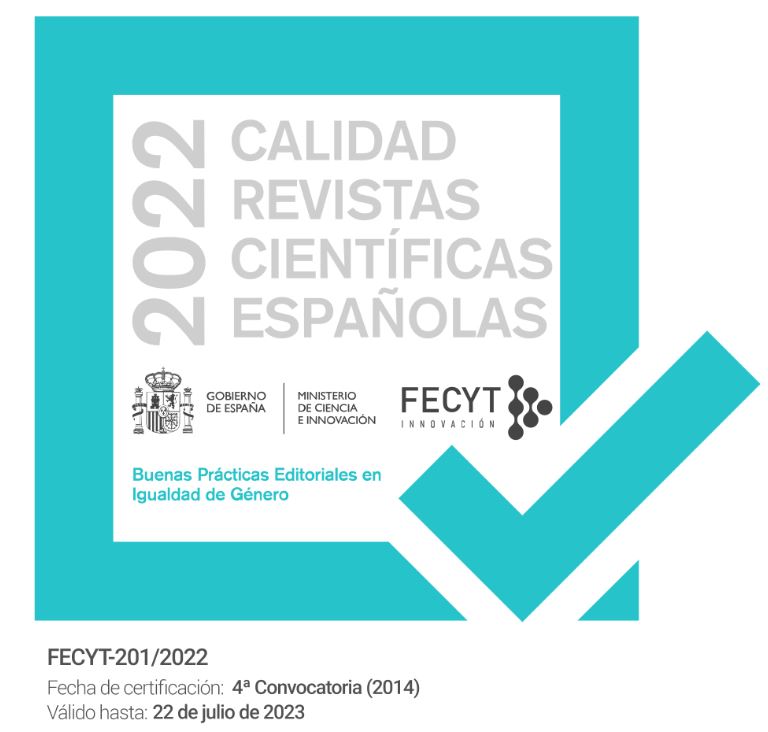Conflict prevention and mediation, a tool for educational social intervention university
DOI:
https://doi.org/10.30827/eticanet.v25i1.30091Keywords:
coexistence, social interaction, conflict resolution, classroom problems, dialogueAbstract
This article has been developed motivated by the observations that have been previously made from the classroom itself, where facts of social intolerance are described in the classroom spheres of the University, in such a way that it has been specified in consonance with the lack of resolution of interpersonal and social problems. From this we can build a better future where all opinions are taken into account and an assessment of subjects is allowed inside and outside the educational context. The objective of this research is to define tools for the prevention and mediation of conflicts as a social educational intervention. Likewise, the approach of the study has a quantitative development, with a descriptive level. The survey technique has been used in the form of a seven (7) item questionnaire to carry out the diagnosis of the elements present in the variables to be investigated. The results were that 61% of those surveyed stated that they had received some form of verbal violence from teachers or students, which represents a valuable and alarming number as it is a number greater than half of the total number of subjects. On the other hand, students note the need to participate collectively in a process of raising awareness among teachers about conflict resolution and proper coexistence. Conclusions: students do not know the internal statutes of the rules of coexistence and require teaching strategies to stop the verbal confrontations that occur in the classroom and other spaces of social interaction.
Downloads
References
Álvarez-Ovallos, A., Gélver-López, A., y Mosquera-Téllez, J. (2020). Conflicto Escolar en la Educación Rural de Nororiente de Colombia. Revista Tecnológica Educativa Docentes 2.0, 9(2), 5-15. doi:https://doi.org/10.37843/rted.v9i2.135 DOI: https://doi.org/10.37843/rted.v9i2.135
Burguet, M. (1999). El educador como gestor de conflictos. Desclée De Brouwer.
Carmona, M., Castillón, L., y Gutiérrez, R. (2020). Conflictos escolares como factor de riesgo en el rendimiento académico y deserción escolar. Revista RedCA, 2(7), 82-100 DOI: https://doi.org/10.36677/redca.v3i7.14703
Cruz López, José Juan (2016). El manejo de conflictos en el aula, desde un enfoque intercultural Revista CoPaLa. Construyendo Paz Latinoamericana, núm. 2, julio-diciembre, 2016, pp. 19-31. Red Construyendo Paz Latinoamericana
Habermas, J. 1987b. “Teoría de la acción comunicativa. Volumen 1: Racionalidad de la acción y racionalización social”. Taurus, Madrid, 1987.
Ramón, M., Garcia, M., Olalde, Al. (2020). Conflictos escolares en la ciudad de Machala, Ecuador. Conflictos escolares en la ciudad de Machala, Ecuador. Revista de Ciencias Sociales (Ve), vol. 26. Universidad del Zulia
Remache, M., Rosero, N., Condor, B. (2022). Estrategias educativas en la solución de conflictos escolares entre adolescentes. Revista Complutense de Educación ISSN-e: 1549-2230. DOI: https://dx.doi.org/10.5209/rced.80036
SEP. (2016). Propuesta curricular para la educación obligatoria. Ciudad de México: Secretaría de Educación Pública.
Soria, L., y Giner, A. (2021). Percepción docente de la naturaleza de la escucha pedagógica e implementación de las relaciones comunicativas en la educación secundaria. Estudios Pedagógicas, 47(1), 323-337. DOI: http://dx.doi.org/10.4067/S0718-07052021000100323 DOI: https://doi.org/10.4067/S0718-07052021000100323
Torrego S. (Coord.) (2000). Mediación de conflictos en instituciones educativas. Manual para la formación de mediadores. Narcea.
Turpo-Gebera, O., Tapia, K., Núñez, M., Manchego, R., y Begazo, C. (2019). Percepciones de estudiantes de la modalidad blended learning sobre la responsabilidad social universitaria.
Ramón, M. A., Lalangui, J. H., Guachichullca, L. A., y Espinoza, E. E. (2019). Competencias específicas del profesional de trabajo social en el contexto educativo ecuatoriano. Conrado, 15(66), 219-229.RISTI, Revista Ibérica de Sistemas y Tecnologías de las Información, (E21), 368-381
Rodríguez, M. (2015). Perspectivas de la educación desde la teoría de la acción comunicativa de Jünger Habermas. UDO. Departamento de Matemáticas de la República Bolivariana de Venezuela
Ruiz Restrepo, J. (2005). Elementos para una teoría del conflicto. En La sociología en sus escenarios (11), 28.
UNIR (2023). Estrategias para resolver conflictos en el aula y su importancia. Disponible en: https://colombia.unir.net/actualidad-unir/como-resolver-conflictos-aula/
Downloads
Published
Issue
Section
License
The authors who publish in this journal agree to the following terms: The authors retain the copyright and grant the journal the right to be the first publication of the work as well as licensed under a Creative Commons Attribution License that allows others to share the work with an acknowledgment of the authorship of the work and the initial publication in this magazine. Authors are allowed and encouraged to disseminate their work electronically (for example, in institutional repositories or on their own website) before and during the submission process, as it may lead to productive exchanges as well as further citation. Earliest and greatest of published works (See The Effect of Open Access).














